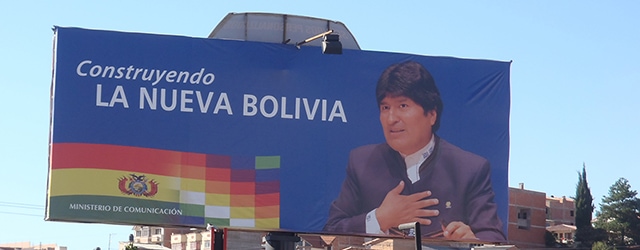Bolivia's economy and businesses arepaying the price for political upheaval.

Bolivia’s political crisis is expected to cost businesses around $2.5 billion as the banking sector takes a hit from rising loan defaults.
“That is the consolidated loss amount,” said Carola Blanco, CEO of La Paz-based brokerage Panamerican Securities, updating last week’s National Chamber of Industries’ $2 billion loss estimate. “Those loss models don’t add the financial system. The banks will have to reprogram loans. There has been an opportunity cost as that money could have been put to work elsewhere.”
Loan defaults have doubled to 4% compared to 2% in October before Bolivia’s President Evo Morales stepped down amid a highly disputed election. The short-term lending rate has also skyrocketed to 8% from 3.5%, squeezing small and midsize companies that make up the bulk of the impoverished South American nation’s economy, worth approximately $40 billion, according to Blanco.
Despite the passage of a new law calling for elections within four months that bans Morales from participating, the situation remains volatile as supporters of Morales’party call for interim President Jeanine Áñez’s resignation. The political vacuum is causing great uncertainty over who will eventually run the country with some analysts saying Morales could make a comeback.
“There is a tense calm,” added Panamaerican investment manager Gustavo Quintanilla. “People know that tomorrow there could be another burst of conflict and more blockades and demonstrations and food supply [shortages].”
Protester blockades starting October 20 caused severe disruptions in the country’s supply chain, hitting a wide range of industries, from energy to food to retail. An explosion in a gas pipeline running through Cochabamba also stalled factories in that city as well as in Oruro and La Paz, boosting fuel prices and producing goodshortages.Roadblocks by angry protesters demanding Morales’ return from exile in Mexico also prevented workers from reaching offices and prompting major supermarkets and malls, such as a Megacenter in La Paz, to shutter for weeks, Quintanilla added.
Cement maker Sobose and dairy firm Pil are two big companies suffering from the gas shortages, analysts said.
“The private sector has been the most affected by a whole month of unrest,” said Quintanilla. “There was a whole suspension of activities in the industrial sector but also in the banking sector where many branches had to close because of security issues.”
But financial consultant Armando Alvarezis confident things will soon return to normal.
“The situation has improved with the new law to call elections though the electoral roll has to be cleaned up and that won’t be easy,” he said.
Banks have been ordered to refinance credits to give companies more time to pay amid the supply chain bottlenecks, helping them adapt to the turmoil.
Most importantly, Bolivia’s breadwinning natural gas exports have been largely unaffected, with recent spikes to Brazil helping boost state coffers.
“Brazilian demand in September and October soared to 30 million cubic feet per day from about 24 million typically,” Alvarez said. However, foreign shipments of other staples such as soy have seen delays.



